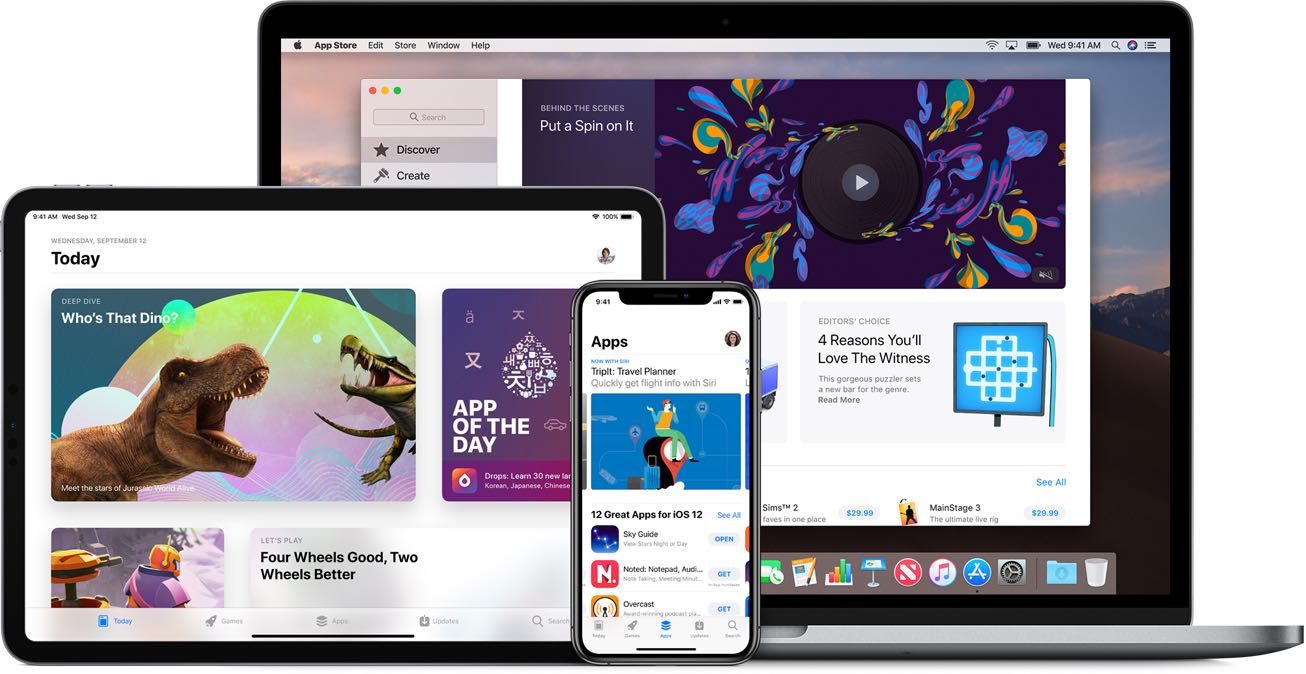
Given the opportunity, Apple will tout the power of the App Store and the opportunity for developers. Of course, the company is also not afraid to launch its own apps, ones that might directly compete with some of those developers trying to make their own way.
As such, some of those developers have raised concerns in the past that Apple’s first-party apps have been given more attention in the company’s own digital storefront, the App Store. But it looks like Apple has decided to make a pretty important change to the algorithm tied to search results, all in an effort to help reduce its own viewings.
The New York Times has the report based on an interview with Apple’s Eddy Cue and Phil Schiller. The goal, at least at face value, looks like Apple wants to reduce the times it may look like the company is giving itself preferential treatment. It’s tweaked the feature that groups certain apps by maker, reducing its own footprint.
Apple made the change back in July. Since then, it looks like it has actually worked.
Apple’s executives say that this change is not a fix, but rather a move to actually improve the App Store experience. However, as noted at the top of the original report, there is certainly no denying that Apple’s apps were cropped together at the top of a search result. Even apps that aren’t necessarily connected or have anything to do with the original search item, something like “podcasts”, could see Apple’s apps populated at the top of the results before any third-party options appeared.
The executives said the company did not manually alter search results to benefit itself. Instead, they said, Apple apps generally rank higher than competitors because of their popularity and because their generic names are often a close match to broad search terms.
“There’s nothing about the way we run search in the App Store that’s designed or intended to drive Apple’s downloads of our own apps,” Mr. Schiller said. “We’ll present results based on what we think the user wants.
However, while the tweak has apparently worked in this instance, it’s not a widespread “fix” and Apple’s own apps are still popping up at the top of a lot of search results. In fact, Apple’s apps rank first out of upwards of 700 search terms, based on data from the analytics firm Sensor Tower:
On Aug. 21, Apple apps ranked first in 735 of roughly 60,000 search terms tracked by Sensor Tower. Most of the tracked searches were obscure, but Apple’s apps ranked first for many of the popular queries. For instance, for most of June and July, Apple apps were the top result for these search terms: books, music, news, magazines, podcasts, video, TV, movies, sports, card, gift, money, credit, debit, fitness, people, friends, time, notes, docs, files, cloud, storage, message, home, store, mail, maps, traffic, stocks and weather.
So, how about a new product from Apple like the company’s first credit card, the Apple Card?
The Times analysis uncovered other surprising examples of Apple apps’ success. On March 25, the company unveiled an Apple-branded credit card that can be used via the Apple Wallet app. The next day, Apple Wallet was the No. 1 result in searches for “money,” “credit” and “debit.” The app had not ranked for those search terms before then.
Mr. Cue and other Apple executives speculated that the team marketing the Apple Wallet app had added “money,” “credit” and “debit” to the underlying description of the app, causing it to appear for those search results.
Then people searched those terms, found the Apple Wallet app and clicked on it, telling the algorithm that it should be the first result.
“We can just tell you that we’ve not done anything to drive that — that is, other than launching a great wallet, an Apple Card and marketing the heck out of it,” Mr. Schiller said.
Apple says it “welcomes competition” within the App Store, so these types of revelations might swing against that.
Do you think Apple should keep making changes in an effort to reduce its presence within the App Store?